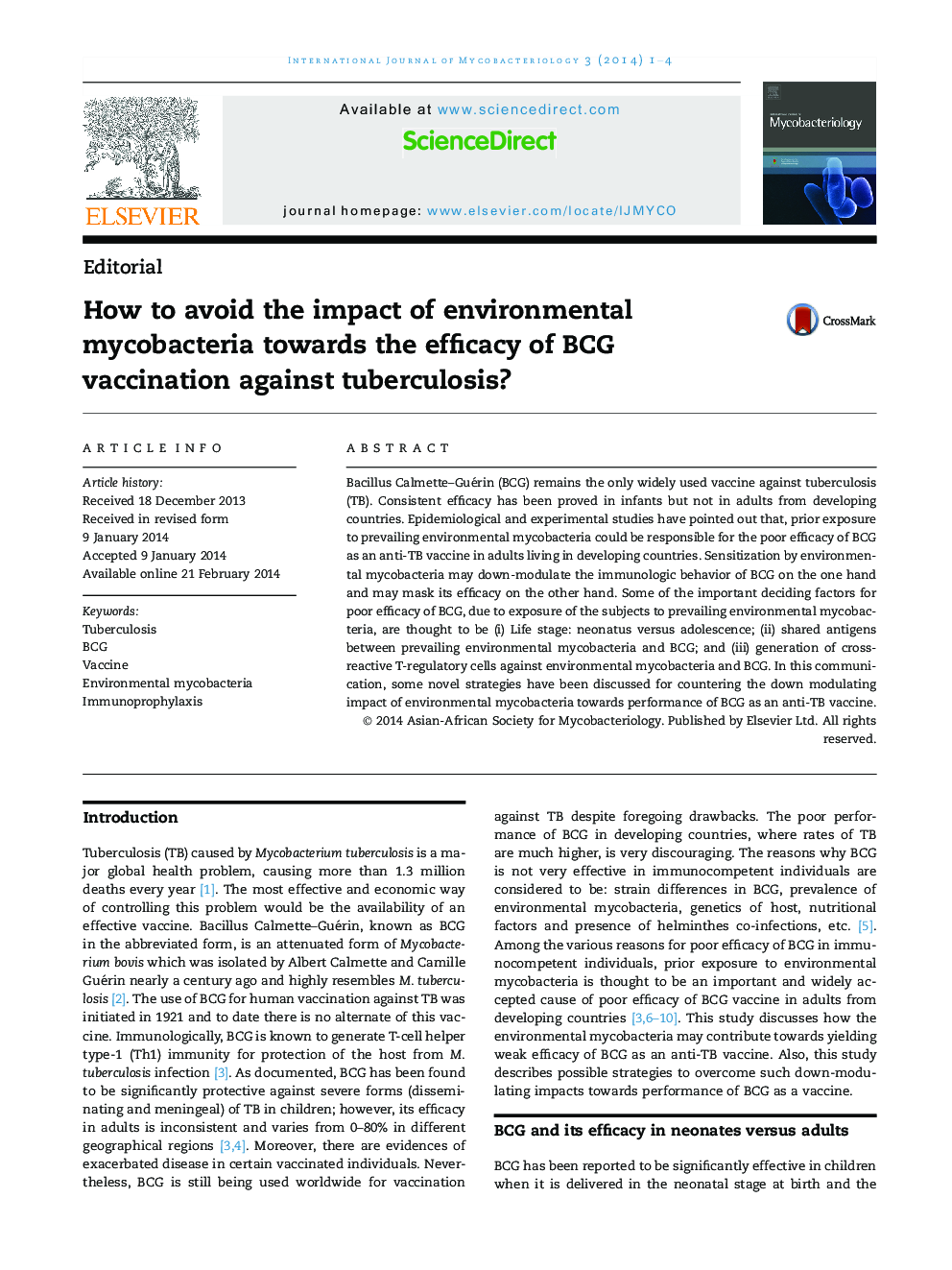| Article ID | Journal | Published Year | Pages | File Type |
|---|---|---|---|---|
| 3405245 | International Journal of Mycobacteriology | 2014 | 4 Pages |
Bacillus Calmette–Guérin (BCG) remains the only widely used vaccine against tuberculosis (TB). Consistent efficacy has been proved in infants but not in adults from developing countries. Epidemiological and experimental studies have pointed out that, prior exposure to prevailing environmental mycobacteria could be responsible for the poor efficacy of BCG as an anti-TB vaccine in adults living in developing countries. Sensitization by environmental mycobacteria may down-modulate the immunologic behavior of BCG on the one hand and may mask its efficacy on the other hand. Some of the important deciding factors for poor efficacy of BCG, due to exposure of the subjects to prevailing environmental mycobacteria, are thought to be (i) Life stage: neonatus versus adolescence; (ii) shared antigens between prevailing environmental mycobacteria and BCG; and (iii) generation of cross-reactive T-regulatory cells against environmental mycobacteria and BCG. In this communication, some novel strategies have been discussed for countering the down modulating impact of environmental mycobacteria towards performance of BCG as an anti-TB vaccine.
